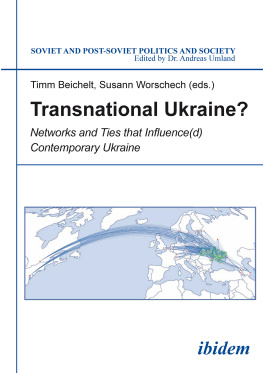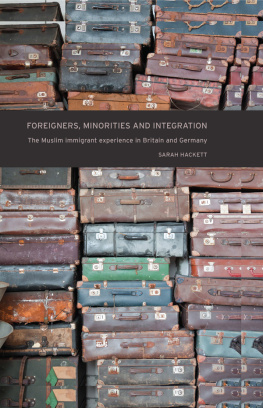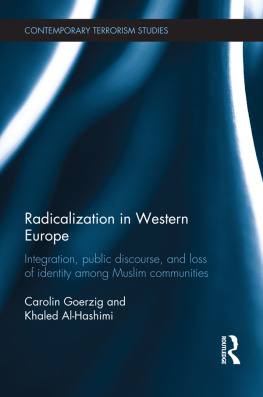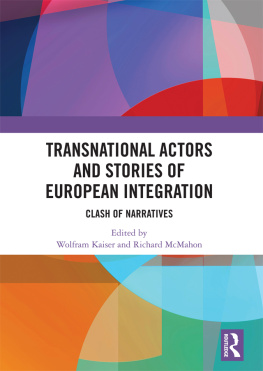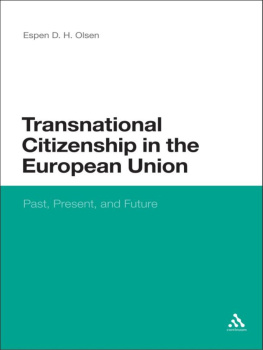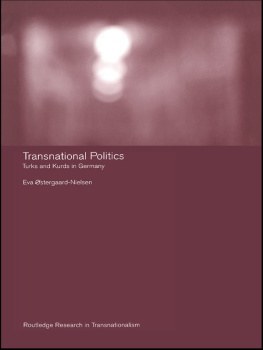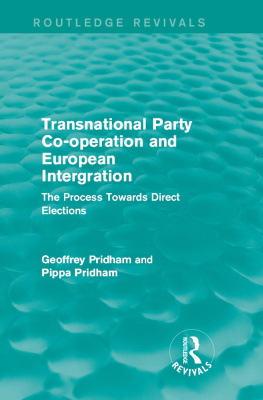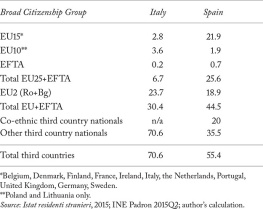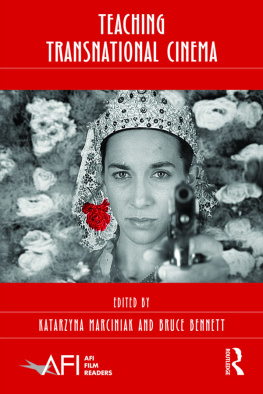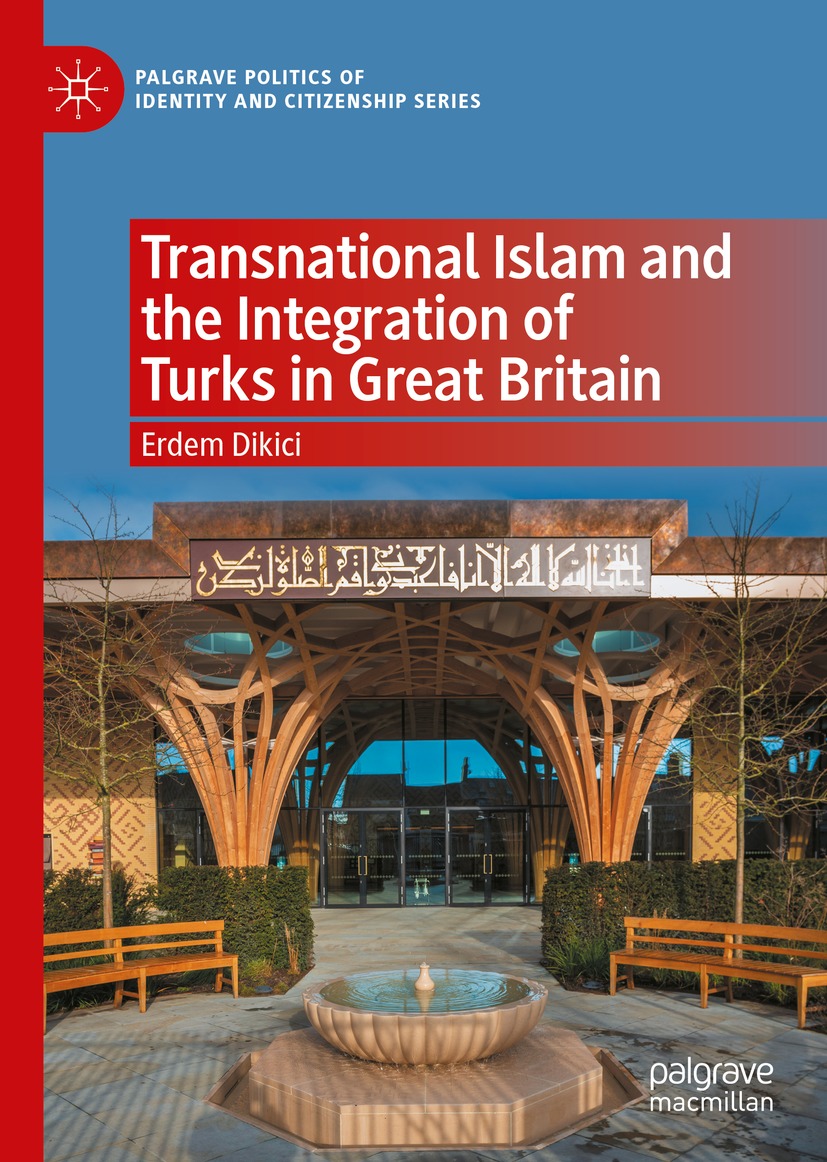Palgrave Politics of Identity and Citizenship Series
Series Editors
Varun Uberoi
Brunel University London, London, UK
Nasar Meer
University of Edinburgh, Edinburgh, UK
Tariq Modood
University of Bristol, Bristol, UK
The politics of identity and citizenship has assumed increasing importance as our polities have become significantly more culturally, ethnically and religiously diverse. Different types of scholars, including philosophers, sociologists, political scientists and historians make contributions to this field and this series showcases a variety of innovative contributions to it. Focusing on a range of different countries, and utilizing the insights of different disciplines, the series helps to illuminate an increasingly controversial area of research and titles in it will be of interest to a number of audiences including scholars, students and other interested individuals.
More information about this series at http://www.palgrave.com/gp/series/14670
Erdem Dikici
Transnational Islam and the Integration of Turks in Great Britain
1st ed. 2021

Logo of the publisher
Erdem Dikici
Istanbul, Turkey
Palgrave Politics of Identity and Citizenship Series
ISBN 978-3-030-74005-4 e-ISBN 978-3-030-74006-1
https://doi.org/10.1007/978-3-030-74006-1
The Editor(s) (if applicable) and The Author(s), under exclusive license to Springer Nature Switzerland AG 2021
This work is subject to copyright. All rights are solely and exclusively licensed by the Publisher, whether the whole or part of the material is concerned, specifically the rights of translation, reprinting, reuse of illustrations, recitation, broadcasting, reproduction on microfilms or in any other physical way, and transmission or information storage and retrieval, electronic adaptation, computer software, or by similar or dissimilar methodology now known or hereafter developed.
The use of general descriptive names, registered names, trademarks, service marks, etc. in this publication does not imply, even in the absence of a specific statement, that such names are exempt from the relevant protective laws and regulations and therefore free for general use.
The publisher, the authors and the editors are safe to assume that the advice and information in this book are believed to be true and accurate at the date of publication. Neither the publisher nor the authors or the editors give a warranty, expressed or implied, with respect to the material contained herein or for any errors or omissions that may have been made. The publisher remains neutral with regard to jurisdictional claims in published maps and institutional affiliations.
Cover illustration: Robert Evans / Alamy Stock Photo
This Palgrave Macmillan imprint is published by the registered company Springer Nature Switzerland AG
The registered company address is: Gewerbestrasse 11, 6330 Cham, Switzerland
To Nazmiye Nur,
Nusret and Elif Neva
Acknowledgements
This book would not have been possible without the help of some people. My PhD dissertation advisors, Professor Tariq Modood and Professor Therese OToole, were as supportive and encouraging of the earliest form of this project as could possibly be hoped. I thank them for their support and collegiality, which were critical for the completion of this study as much as for my intellectual growth.
I am grateful to Professor Anna Triandafyllidou, Professor Jon Fox, Professor Katharine Charsley, and Dr Vernon Hewitt, who provided valuable and much needed critical feedback during the various examinations of the thesis on which this book is based. During my time in Bristol, I have had rewarding discussions with, among others, Ben Grove-White, Dimitri Batroini, Jonah Bury, Laura Lyddon, and Gilberto Algar-Faria.
I thank series editors Varun Uberoi and Nasar Meer for their encouragement and support. And I would like to extend my thanks to Palgrave Macmillans editor Sharla Plant for her support and professionalism, and the two anonymous referees for their helpful recommendations.
I am blessed with the unconditional love and support of my parents Fatma and Adem Dikici, and brothers Ertan and Ersan. My wife Nazmiye Nur has always been a source of love and inspiration; and our son Nusret and daughter Elif Neva have not only brought great joy to our lives, but also strength and motivation to navigate our ways in this difficult time.
Contents
The Author(s), under exclusive license to Springer Nature Switzerland AG 2021
E. Dikici Transnational Islam and the Integration of Turks in Great Britain Palgrave Politics of Identity and Citizenship Series https://doi.org/10.1007/978-3-030-74006-1_1
1. Introduction: Identifying Equilibrium in Integration and Transnational Studies
Diversity in terms of race, ethnicity, culture and religion is not a new phenomenon. Yet, ways of living with and responding to diversity have differed drastically. The politics of difference in diverse pre-modern empires (such as the Roman and Ottoman) was different from that of modern liberal nation-states (Karpat & Yildirim, , p. 15). This study focuses on post-immigration-led diversity and post-war political responses of liberal nation-states to it.
In the twentieth century, two world wars resulted in histrionic population changes: millions of deaths, refugees and immigrants. WWII in particular furthered the need for a large labour force in Europe. To consolidate their economic development, most Western European countries imported labour from their former colonies; countries like Germany with fewer or no colonial links imported labour through bilateral guest-worker agreements with Mediterranean countries such as Turkey and Morocco (Paine, , p. 1).
Since the 1960s, discussions and concerns about immigration and immigrants have gradually moved to the centre of politics in Western Europe, taking place in various realms regarding the states political responses to these phenomena (Castles et al., , p. 630).
Perhaps in response to such critics, in the last decade, numerous scholarly works, notably three special issues, on national models of integration were published in leading academic journals in Europe and the United States.).
In sum, the idea of integration has been a broadly acknowledged and applied political framework to deal with newcomers in Western Europe. This study concentrates on the ways in which transnationalism impacts immigrant integration in contemporary Western societies. My objective is to provide, with as much precision as possible, a framework for rethinking through who the key actors are in the debates on, and process of, immigrant integration in contemporary Western European societies. In particular, this book focuses on transnational Islam, as a form of transnationalism writ large, and seeks to explore how transnational Muslim organisations might impact the integration of Muslims in the West. To this end, this book first addresses some general questions such as what is the relationship between integration and transnationalism and how do transnational actors affect integration; then some specific questions, including does transnational Islam inherently hinder the integration of Muslims, how do transnational Islamic organisations affect the integration of Muslims and so on. In the light of these and other questions, this book develops several avenues of inquiry: first, it critically analyses existing approaches to and theories of integration; second, it unpacks the concept of transnationalism, focuses on the relationship between transnationalism and migration scholarship and then elaborates on the ways in which transnationalism and transnational Islam impact immigrant integration; third, it identifies and evaluates possible transnational state and non-state actors that might be involved in and impact the debates on, and processes of, integration. As this study focuses on the question of how transnational Muslim organisations impact (Muslim) integration in the West, it undertakes a case study. It focuses on a transnational Turkish civic Islamic organisation namely the Glen movement (GM), and its possible impacts on the debates, activities and politics of the integration of Turkish-speaking people in Great Britain. Studying a particular unit in depth by looking at causal and complex relationships, that is, undertaking a case study (i.e. a transnational Muslim network) is one of the most effective ways of exploring the ways in which transnational Islam impacts Muslim integration.



